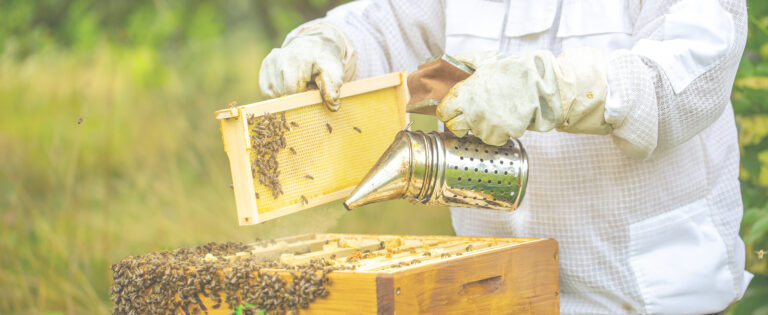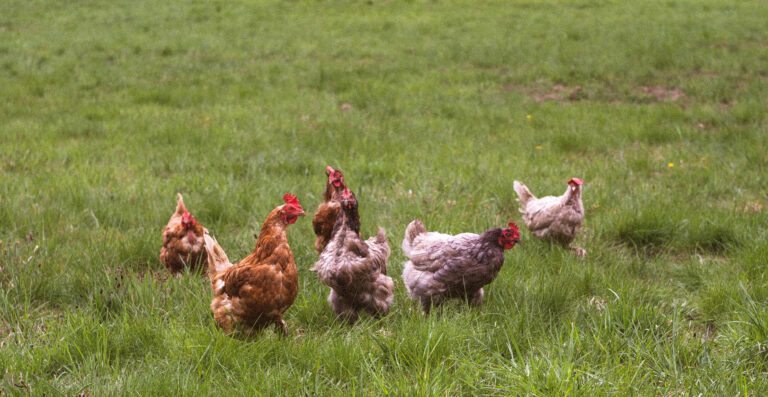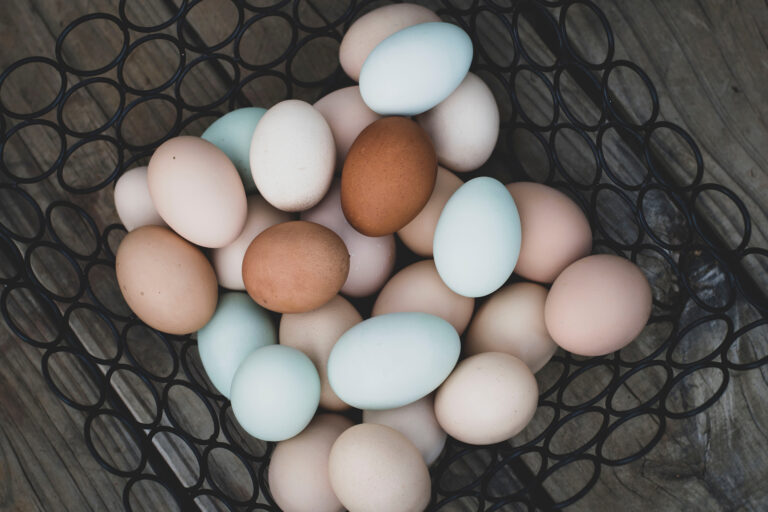Beginners Guide to Raising Chickens
Are you considering raising chickens? Chickens can be wonderful pets and offer many benefits, from fresh eggs to natural pest control. However, if you’re new to raising chickens, it can be overwhelming to know where to begin. In this beginner’s guide to raising chickens, we’ll cover the basics of raising chickens, so you can confidently start your journey.
Housing
Chickens require a safe, secure, and dry place to live. You have two options when it comes to housing: buying a pre-made coop (which is what I opted for) or building your own. If you’re building your own, ensure it meets the following requirements:
- Provides at least 2 square feet of space per chicken: Chickens need enough space to move around and spread their wings. Overcrowding can lead to stress, resulting in health problems and a decrease in egg production.
- Offers protection from predators: Chickens are vulnerable to predators such as raccoons, foxes, and hawks. Make sure your coop is predator-proof by using sturdy materials, ensuring all openings are covered. I also highly suggest digging about a foot down along the perimeter and adding hardwire cloth at the bottom. This prevents predators from digging under to access your flock.
- Provides adequate ventilation: Good ventilation helps regulate the coop’s temperature, humidity, and air quality. This is important for the health and well-being of your chickens.
Where I started and where I am now
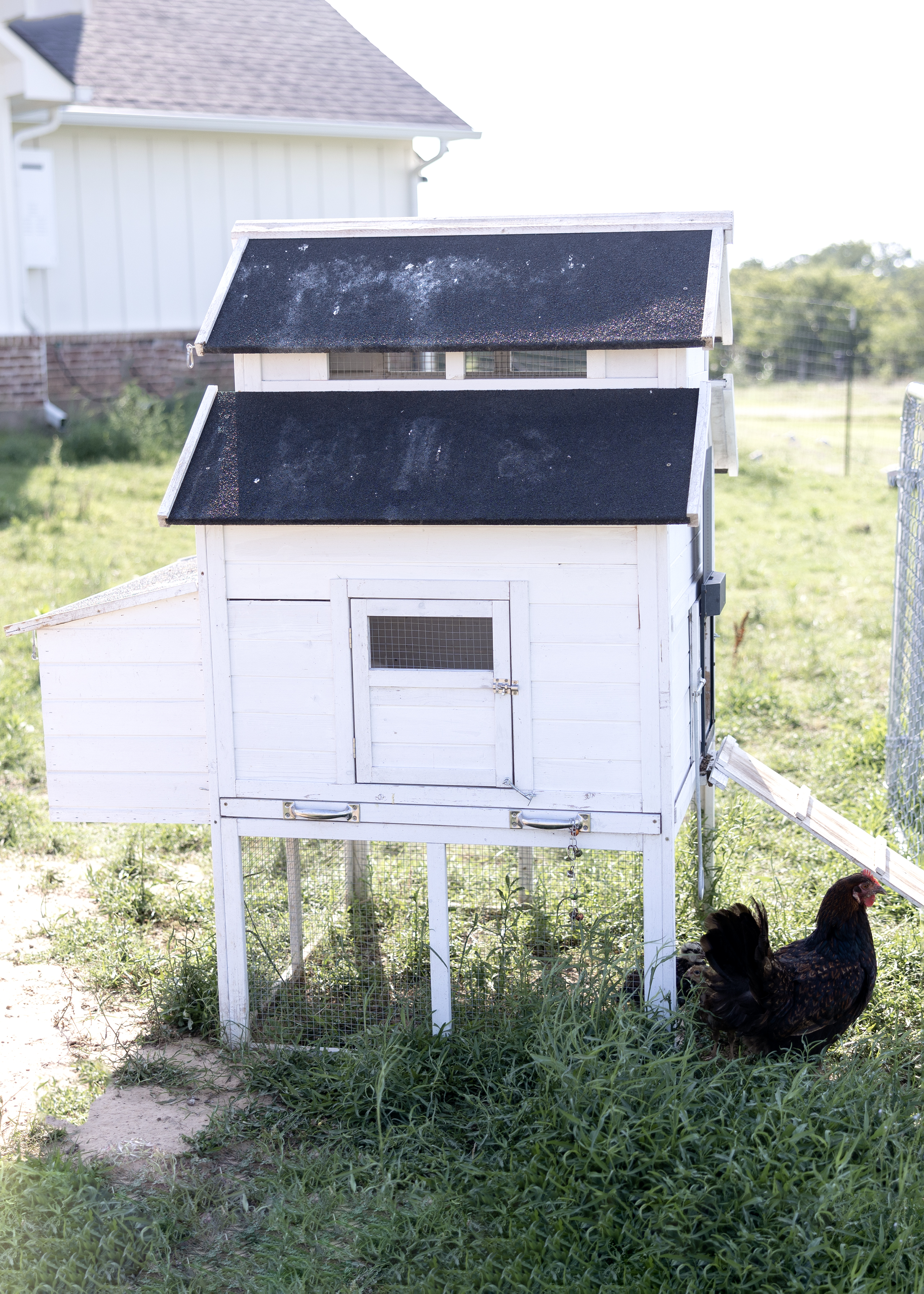
My beginner Coop was perfect for my first batch of babies! I had 8 total 7 hens and 1 rooster. I loved this coop mostly because it matched my house so perfectly! (Link to my coop) We purchased this wire run that was perfect for the 8 chickens. I eventually let them out in this fenced area it’s about 4500 square feet of grass, weeds, and bugs – a chicken dream! Right now it’s being used by my mama hen and her 3 babies. Once they integrate into the flock I’ll be using it as a bachelor pad for my group of roosters near my garden!
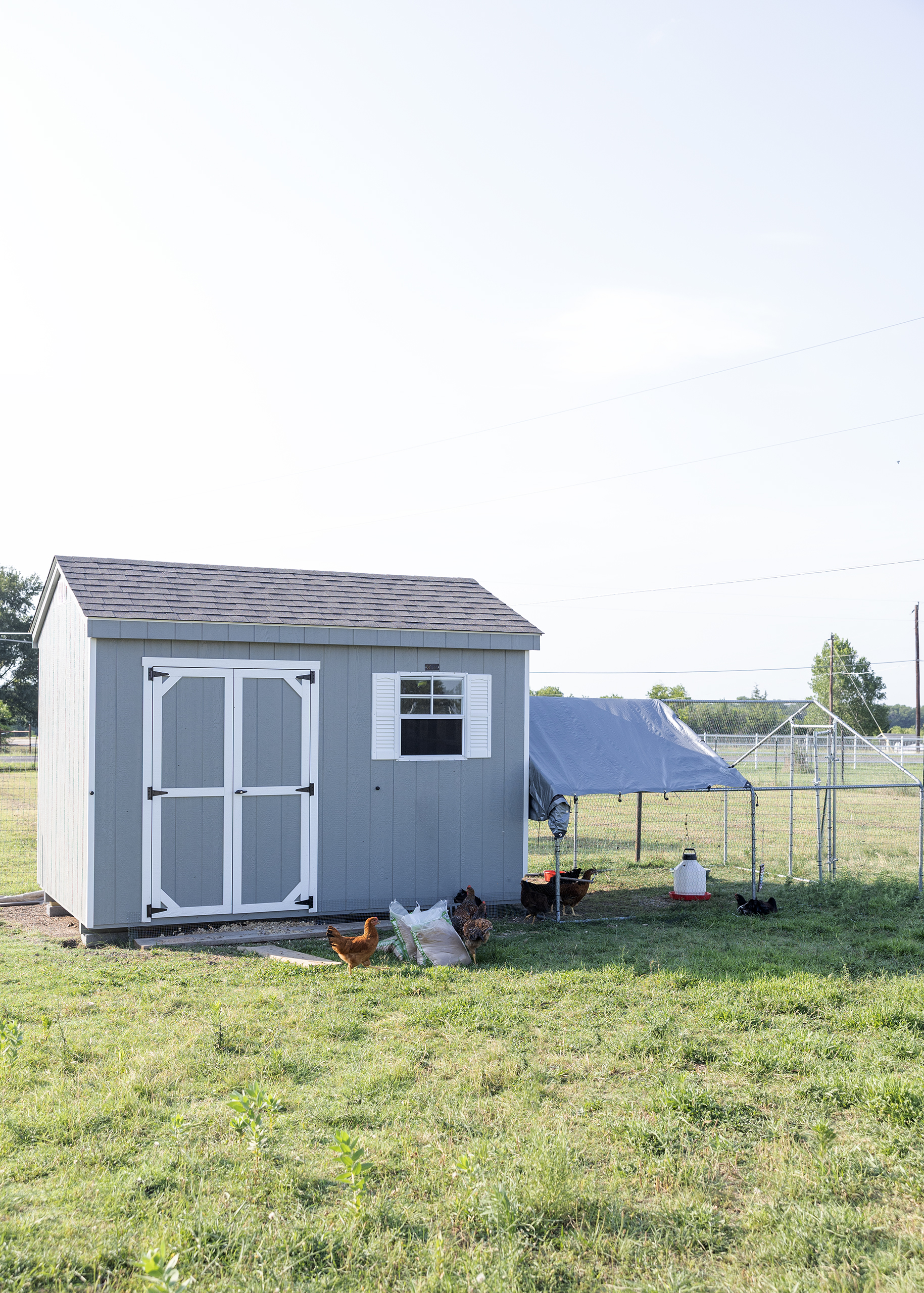
I hatched 20 babies this spring and needed a larger coop. I decided the fastest easiest way was to buy a prebuilt shed and customize it! It’s much less expensive than buying a “coop” this large. It’s 8×12 and I wanted the double doors to make it easier to clean out! I added shelving for all my supplies and so far they haven’t gotten into anything! I also added a few roosting bars and a poop shelf under it with sand for easy cleaning each morning. There are 26 in here now but will take the 8 new roosters out as soon as I can get the other coop away from Mama and the babies and get them in the big house! I LOVE being able to walk in and have everything right there that I need to get my chicken chores done!
Food and Water
Chickens need access to fresh water at all times. You can use a traditional waterer or an automatic one. Whichever you choose, make sure it’s cleaned regularly to prevent bacteria build-up.
Chickens also require a balanced diet, which includes good quality chicken feed that is high in protein. You can buy chicken feed from a farm supply store or online. Make sure the feed you buy is specifically formulated for chickens. I use Grubbly Farms feed. Always use chick feed for chicks before they are laying. This is usually around 16-20 weeks. The extra calcium can harm babies since they aren’t ready for all that protein!
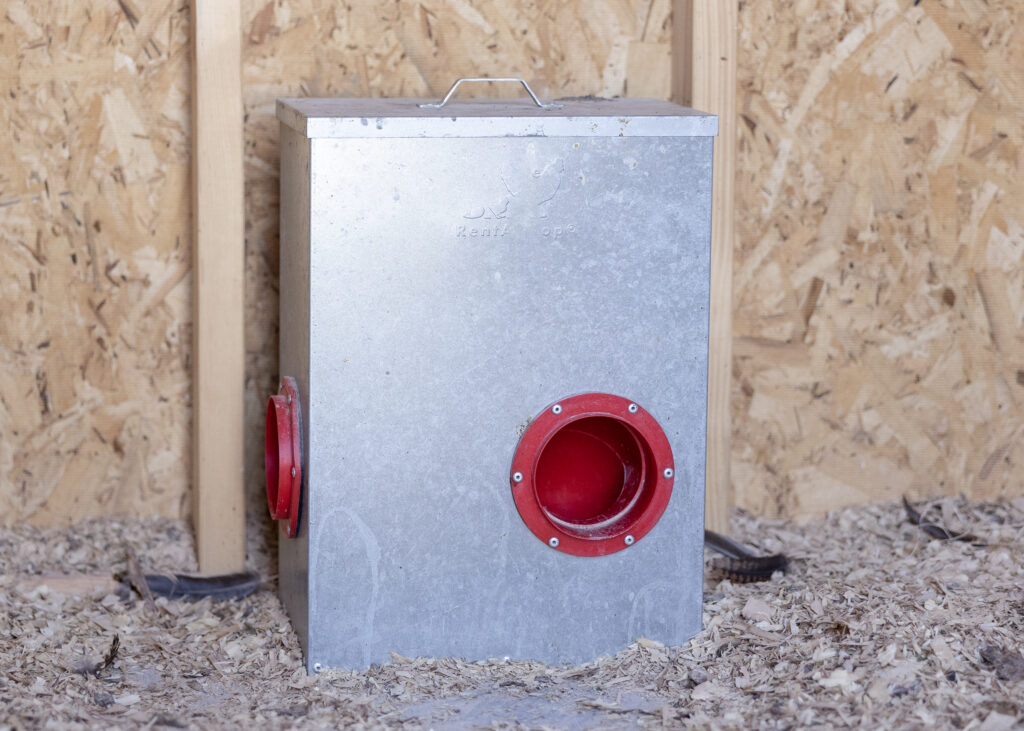
You can also supplement their diet with treats such as fruits, vegetables, and grains. However, treats should only make up a small portion of their diet. Overfeeding treats can lead to obesity and health problems.
The feeder I have holds 20-25 lbs of food. Once they figure it out it sure makes feeding easy! You can purchase this feeder here. I now have several waterers around the chicken yard especially with summer arriving. I have a 5-gallon and 2 1-gallon containers.
Health
To ensure your chickens stay healthy, you need to check them regularly. This includes checking their eyes, beaks, feet, and feathers. Look for any signs of illness, such as sneezing, coughing, or discharge from the eyes or nostrils.
When checking their feet look for any lumps that occur on the bottom. This is possibly Bumblefoot. it is treatable but can be quite a long recovery. Bumblefoot is an infection in the foot and will need cleaning and wrapping.
You should also check for parasites, such as lice and mites, which can cause discomfort and health problems. If you suspect your chickens have parasites, treat them immediately with an appropriate medication. I will be covering health issues in a post coming up.
Egg Laying
If you plan on raising chickens for their eggs, you need to provide nesting boxes in your coop. Chickens usually start laying eggs around 5-6 months of age, and they will continue to lay for several years
Make sure the nesting boxes are clean, dry, and comfortable. You can use materials such as straw, hay, or wood shavings for bedding.
Collect eggs daily to prevent them from getting dirty or damaged. Store them in a cool, dry place until you’re ready to use them. Fresh eggs retain a natural protective coating called bloom, which omits the need for refrigeration. However, if washed, the eggs lose this protective layer and must be refrigerated to maintain their freshness.
Hope this beginners guide was helpful!
Raising chickens can be a rewarding and enjoyable experience. By providing your chickens with a safe and secure home, good quality food and water, and regular health checks, you’ll be well on your way to a successful chicken-raising journey.
Remember, chickens require daily care and attention. They need to be fed, watered and checked on a regular basis. Raising chickens can be a wonderful addition to your life if you’re prepared to put in the time and effort. Good luck and have fun!


